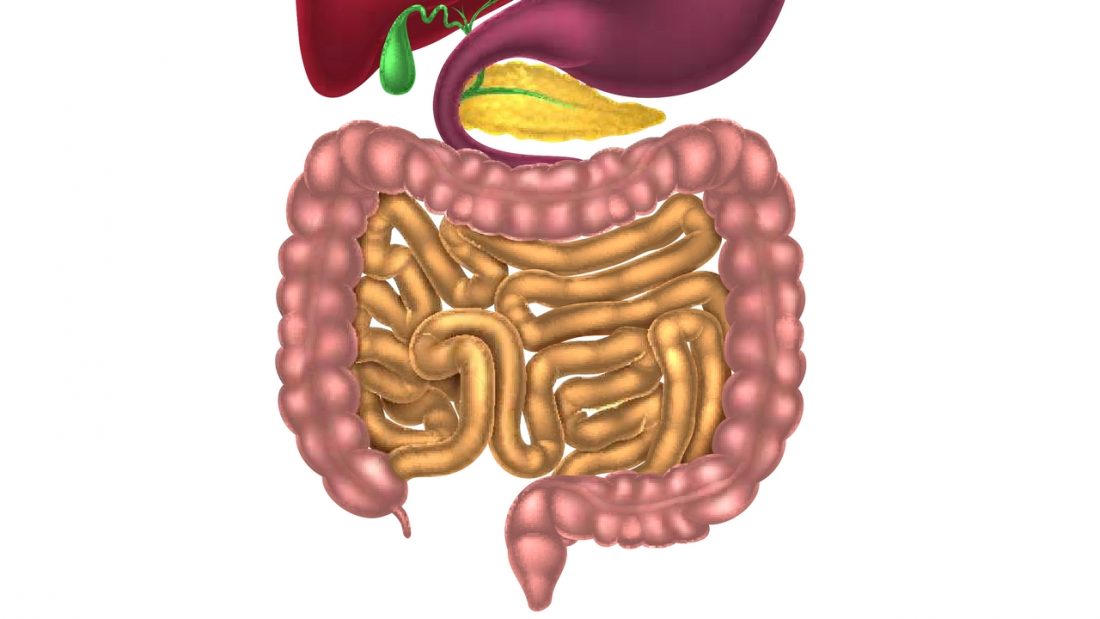Researchers are unraveling the importance of the gut bacteria in our large bowel. These bacteria are referred to as microbiota. As a community, they have ten times as many cells as the human body. So significant is this ecosystem that some researchers refer to it as the forgotten organ of the body.
Where do gut bacteria come from?
Our initial gut bacteria are passed on during the birthing process from our mother and our surrounding environment. The type of bacteria that evolve in our guts is influenced by our hygiene, diet and drug therapies. There can be individual factors such as our genetics, the pH (level of acidity) in our bowel and our immune response.
Role of gut bacteria
Prior to the 1990s research on microbiota was limited as these organisms die as soon as they are exposed to air. New equipment and research techniques have been crucial in identifying the different types of organisms and their roles in health and disease. The functions of microbiota include:
- Protection again enteropathogens (disease-causing organisms)
- Extraction of energy and nutrients
- Normal function of the immune system
What is dysbiosis?
Disruption of the balance of organisms in the gut is referred to as dysbiosis. This has been associated with:
- Obesity
- Inflammatory bowel disease
- Neurological disorders such as multiple sclerosis
- Allergies such as asthma and food allergy
- Eczema
- Bowel cancer
The dysbiosis that occurs in inflammatory bowel disease involves bacteria and toxins moving from inside the gut into the tissues lining the gut. This causes our gut lining to become inflamed. This process is often called ‘leaky’ gut as a break is formed in the protective barrier of the bowel. There has been an explosion in inflammatory disease over the past 20 years and researchers believe that dysbiosis is playing role in the increase. Inflammation is present in most lifestyle-related diseases and conditions such as diabetes, heart disease, and overweight.
A healthy gut
A healthy gut is present when the microbiota experience symbiosis (balance). The dietary factor related to symbiosis is DIETARY FIBRE. Gut bacteria ferment dietary fibre producing short-chain fatty acids; acetate, butyrate, and propionate. These short chain fatty acids interact with our immune system in a positive way.
- Acetate appears to protect the body from colitis (inflammation of the colon), asthma and arthritis
- Butyrate seems to prevent colon cancer and colitis
- Propionate has a role in preventing asthma
Dietary fibre
The best way to eat dietary fibre is from a variety of whole foods, especially green leafy vegetables, fruit, and legumes. Choose wholegrain and wholemeal bread and cereals in preference to white varieties. As outlined in earlier blog posts aim for five serves of vegetables a day, two serves of fruit and five serves of wholegrain cereals. Include legumes and lentils as a vegetable or instead of meats at least twice a week and enjoy raw or dry roasted unsalted nuts at least twice a week.
Gradually increase the amount of dietary fibre you eat to minimise bloating and wind. These will be short-term side effects whilst your gut bacteria adapt to you eating more fibre. Researchers are still investigating the relationship between diet, microbiota, and health. However by increasing the amount of dietary fibre we eat our overall health with benefit, not just our gut.

I prefer the taste of wholegrains over “white” for sure, but always find it a challenge when at a cafe or restaurant… any tips for eating out?
Thanks Rita, Yes eating away from home can be a challenge. When closer to home seek out cafes that offer whole foods. Choose wholegrains whenever you can, or try some other grains such as quinoa or barley if they are available. If only white grains are offered, team them up with a soup, a vegetable pasta sauce or lentil burger in cooler weather. On warmer days a crispy salad is a good choice. This way you can top up your fibre with some tasty options. When travelling take some fresh fruit and nuts for snacks.